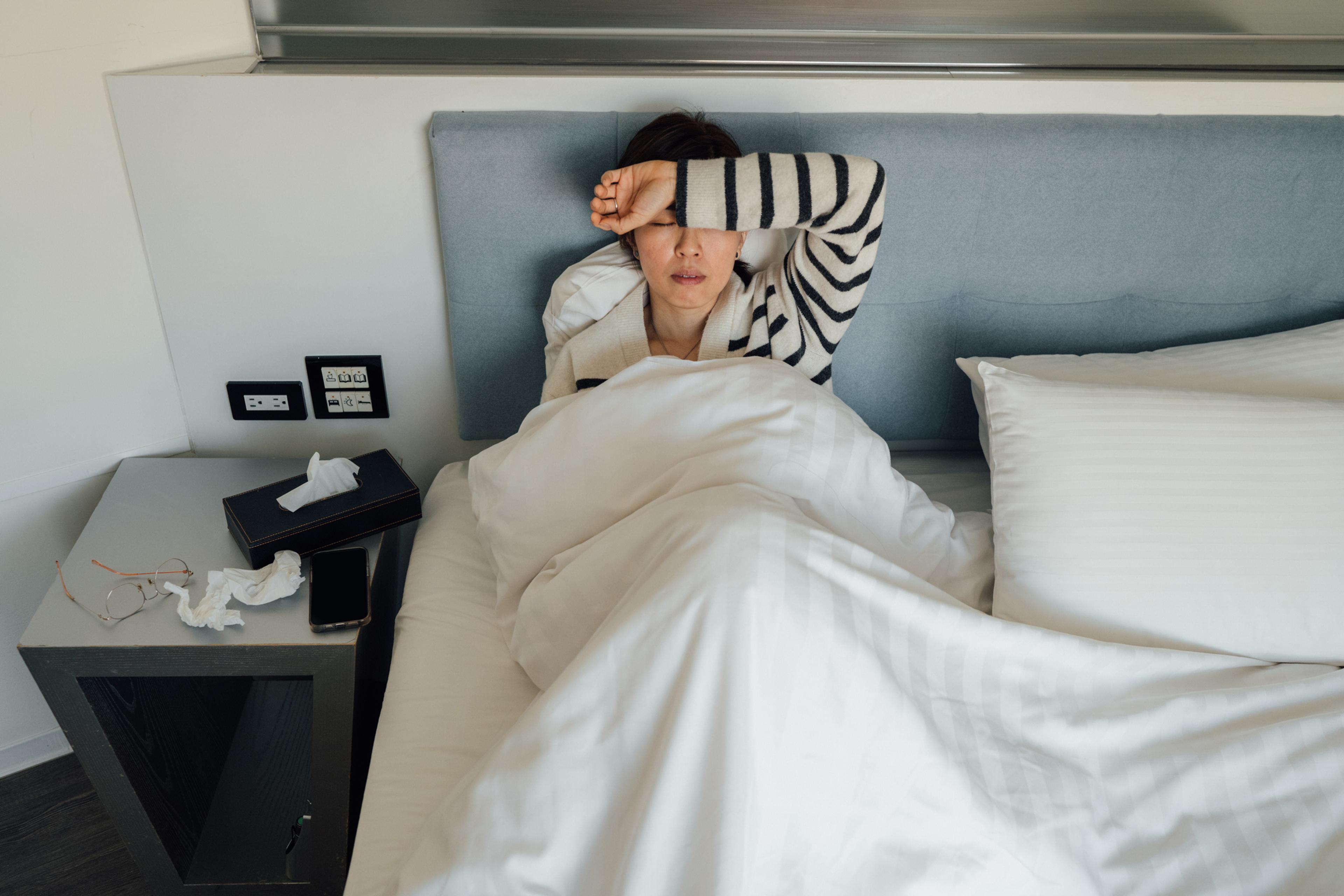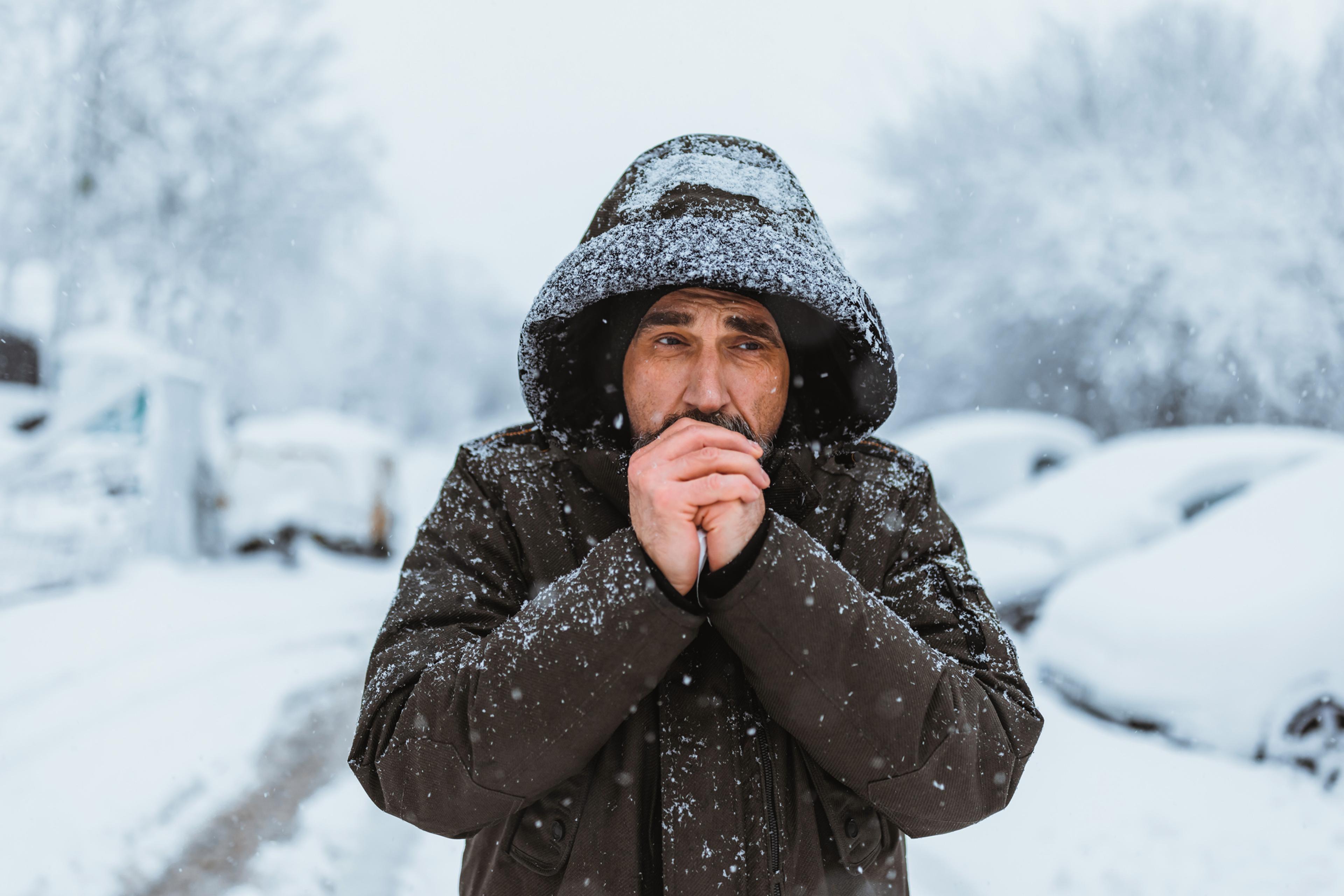How to Handle Postpartum Night Sweats
Jake Newby
| 3 min read

Key Takeaways
- Postpartum night sweats are typically caused by a drop in hormone levels, but fluid loss, breastfeeding and underlying health conditions can also contribute.
- You can treat postpartum night sweats by attempting to lower your body temperature at night.
- Postpartum night sweats usually go away on their own after several weeks, when hormones balance out to pre-pregnancy levels.
Postpartum night sweats occur when you sweat excessively overnight in the weeks following childbirth. They can be uncomfortable and inconvenient for mothers who experience them.
One study examining nearly 450 women found between 29%to 35% of them deal with nighttime hot flashes – also known as postpartum night sweats – in the weeks and months following childbirth. The study found postpartum night sweats are more common among younger women and women with a higher pre-pregnancy body mass index.
If you’re one of the one-third of women who sweat at night after delivering a child, this guide can help you mitigate the issue.
Why do I sweat so much in my sleep after having a baby?
Postpartum night sweats are typically caused by a drop in hormone levels. Pregnant women experience increased levels of estrogen and progesterone while pregnant, before experiencing a dramatic drop in both hormone levels just after childbirth, according to WebMD.
Fluctuating hormone levels can cause the hypothalamus – the part of the brain that controls body temperature – to send signals to the body that it is too hot, causing it to sweat in excess. This is the same reason hot flashes are common during menopause, a condition in which women often experience declining estrogen levels.
Other factors that could contribute to postpartum night sweats
Loss of fluid: The average pregnant woman retains more than six liters of water during pregnancy, according to the Sleep Foundation. Some experts believe night sweats are a biproduct of your body attempting to shed that extra fluid, which is no longer needed after childbirth.
Breastfeeding: Women who are breastfeeding are lactating. This means their body is full of the hormone prolactin, which is responsible for triggering breast milk production. Prolactin lowers estrogen levels in the body, which can cause sweating and hot flashes.
Underlying health conditions that could contribute to night sweats, according to the Cleveland Clinic, include:
- Anxiety
- Diabetes
- Hypoglycemia
- Hypothyroidism
- Thyroiditis
How to treat postpartum night sweats at home
Lowering your body temperature can help reduce night sweat. Here are some ways to safely do that.
Wear loose, breathable pajamas: Wear pajamas that are loose and lightweight, and made of fabrics like linen, silk and cotton.
Adjust your bedroom temperature: a room temperature between 60- and 67-degrees Fahrenheit is recommended by sleep experts. You can also consider boosting airflow in your bedroom by opening a window to allow cool air inside or turning on a fan.
Consider sleeping on a bath towel: place a soft towel under your body to absorb sweat and avoid staining your mattress. Additionally, consider protecting your mattress by placing a waterproof mattress pad under your sheets.
Invest in cooler bedding materials: lightweight, moisture-wicking bed sheets could be a good investment. Just like with your PJs, cotton, linen and silk are good options. Bamboo is soft and breathable as well.
Stay hydrated during the day: Most experts suggest women drink more than 11 cups of water per day to stay adequately hydrated. This is recommended to avoid dehydration, which can be caused by excessive sweating.
How long do night sweats last after pregnancy?
Sweating at night post pregnancy is an issue that usually subsides after several weeks, when hormones balance out to pre-pregnancy levels. WebMD lists an expected timeline of six weeks, which aligns with the traditional postpartum period of12 weeks after birth.
When to see a doctor for postpartum night sweats
Postpartum night sweats are rarely a sign of anything serious, according to the Cleveland Clinic, which recommends contacting your primary care provider (PCP) if you are also experiencing fever, chills or pain. In this case you may want to consult with your PCP to rule out a possible postpartum infection.
Read more:
Photo credit: Getty Images





